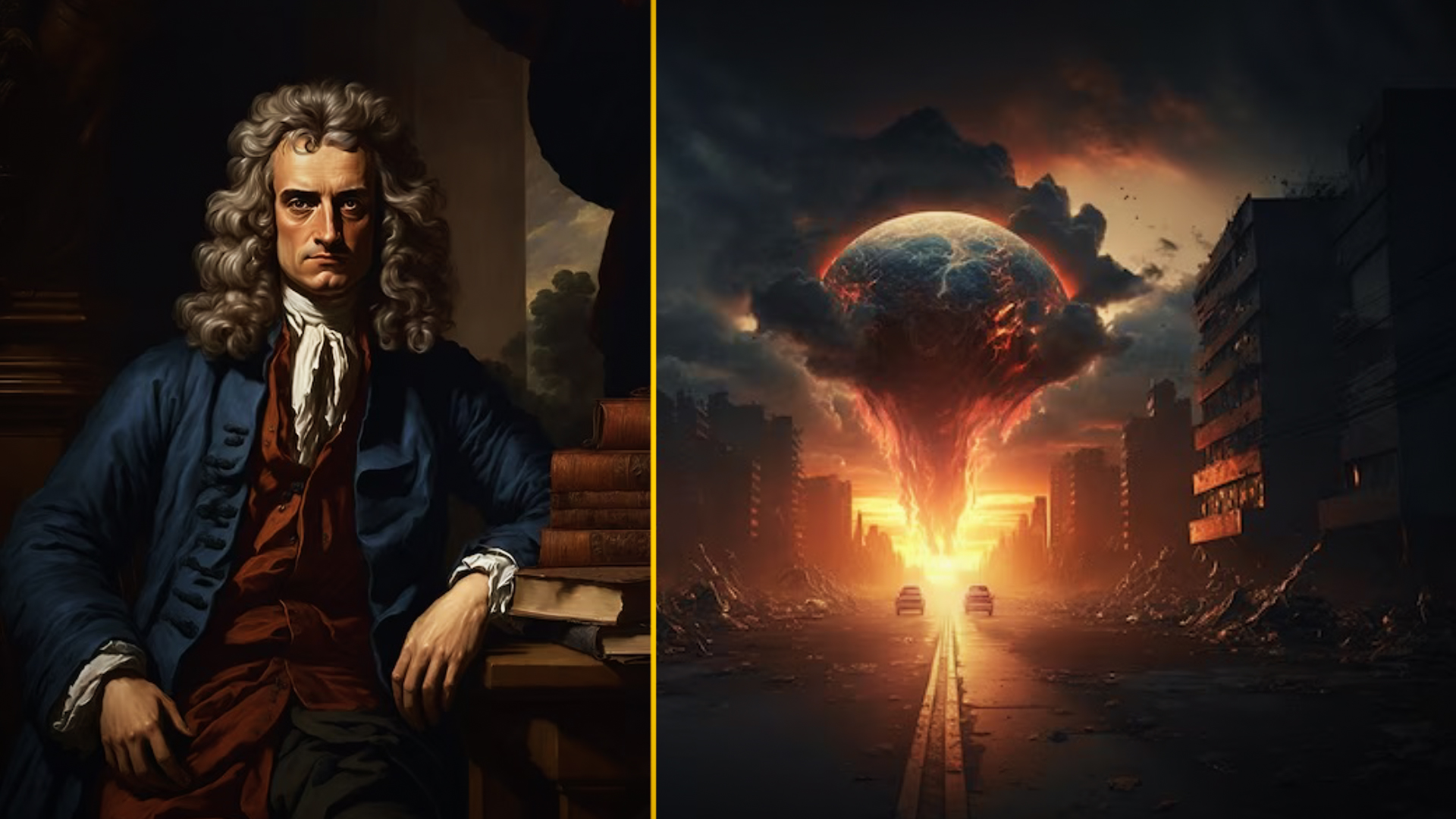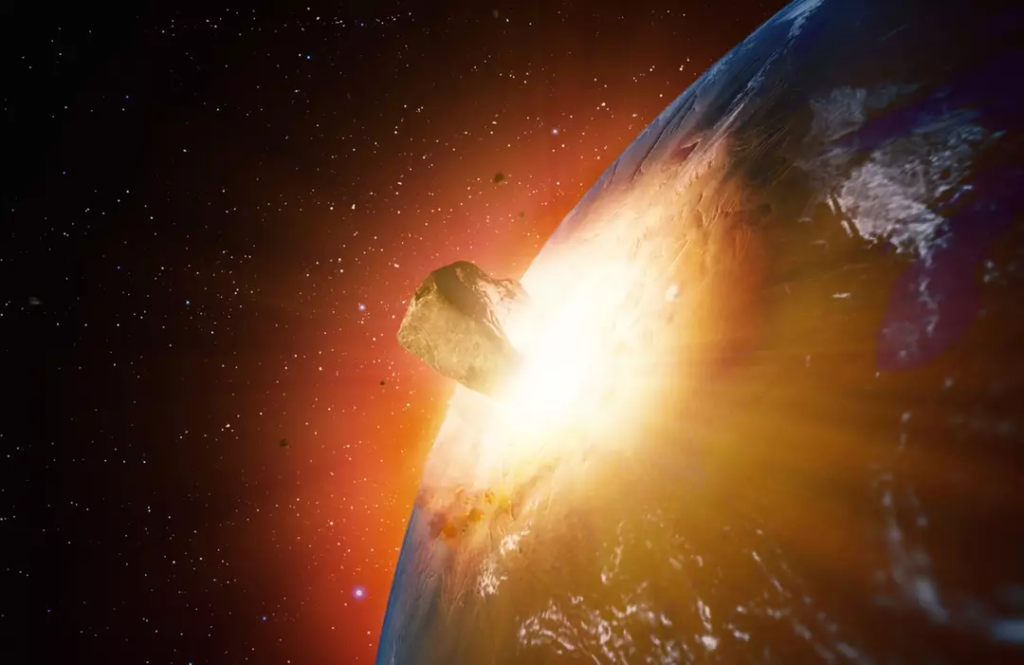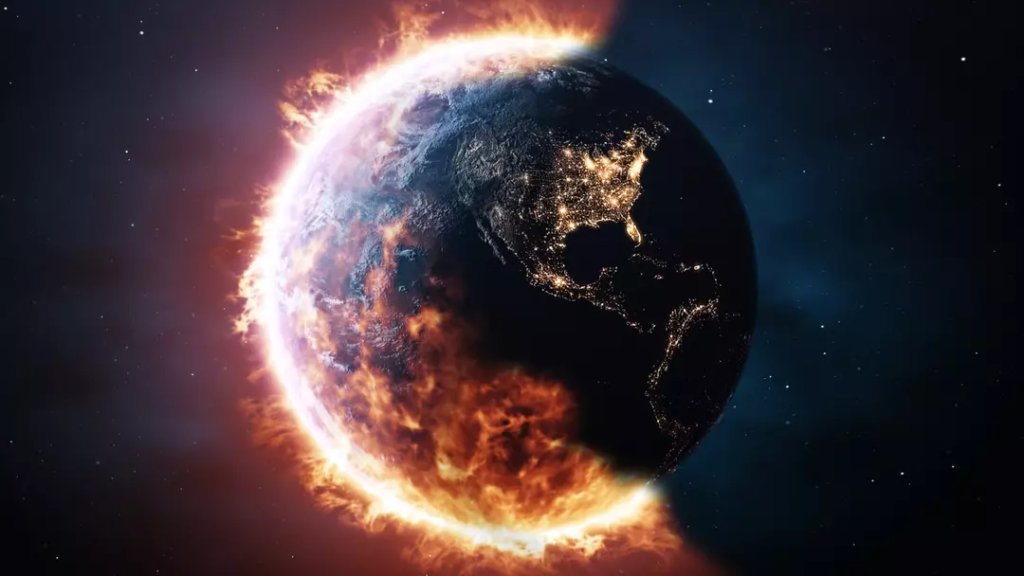Isaac Newton’s Doomsday Prediction

The world has witnessed countless doomsday predictions throughout history. Every time one passes without consequence, people breathe a sigh of relief, only to face the next round of ominous forecasts. However, one such prediction comes from a mind that truly changed the world—Sir Isaac Newton, whose groundbreaking contributions to science and mathematics have shaped our modern understanding of the universe.
Known for discovering the laws of gravity and motion, as well as inventing calculus, Newton is undoubtedly one of the most brilliant minds ever to live. So, when Newton made a prediction about the end of the world, it caught the attention of many, especially given his intellectual stature. Could a prediction from such a genius hold some weight?

Newton’s Prediction: A Glimpse into the Future?
Isaac Newton, the 17th and 18th-century British physicist, made his predictions about the end of the world in 1704. Long before the industrial revolution, trains, and even the guillotine, Newton was already pondering the fate of humanity. Using his knowledge of theology, history, and mathematics, Newton theorized that the world would meet its end by the year 2060—just 36 years from today.
In a paper, likely written in private, Newton wrote, “So then the time times & half a time are 42 months or 1260 days or three years & a half, reckoning twelve months to a year & 30 days to a month as was done in the Calendar of the primitive year. And the days of short-lived Beasts being put for the years of lived kingdoms, the period of 1260 days, if dated from the complete conquest of the three kings A.C. 800, will end A.C. 2060.”
The “A.C.” stands for Anno Christi, meaning the year of Christ, which aligns with Newton’s Christian worldview. His prediction, grounded in biblical prophecy, suggested that the end would occur in 2060, or potentially later, but not sooner.
The Theological Foundation: The Book of Daniel
So how did Newton arrive at such a precise conclusion? Newton was a devout Christian, and much of his theory was based on religious texts, particularly the Book of Daniel from the Old Testament. The Book of Daniel speaks of a prophecy involving the “end of times,” where kingdoms rise and fall, and ultimately, the coming of a new world order.
Newton’s interpretation of the “end of the world” wasn’t about fiery destruction or the collapse of civilization. Instead, he envisioned a peaceful reign of Christ—his idea was that the world would enter a new era when Jesus would return, bringing peace and justice to the world. In Newton’s eyes, the end of the world was more about the transformation of human society than the obliteration of humanity.
According to Andrei Tapalaga, curator of History of Yesterday, Newton’s prediction wasn’t meant to suggest Armageddon in the traditional sense. Rather, it was about the end of an era—when Jesus would return to establish a thousand-year reign of peace. “Jesus would burn all of those that have corrupted Christianity for their own personal gain and teach us all to live in harmony,” Tapalaga explained. “Those that oppose him will face his wrath, and those who embrace him will face his love.”

This perspective frames the “end of the world” as a divine intervention, not a catastrophic event. The world would transition into a new era of peace and righteousness, rather than experiencing destruction.
User Comments: What Do People Think About Newton’s Prediction?
Isaac Newton’s prediction about the end of the world in 2060 has sparked various reactions online, with many people weighing in on his incredible foresight and the validity of his claim.
One Twitter user shared, “Newton’s prediction sounds intriguing, but do we really need to be worried? There’s no scientific evidence to back this up.”
Another Reddit commenter mentioned, “I’ve read about his predictions before, but considering his religious views, I don’t think he meant it in the way we interpret the apocalypse today. It seems more about spiritual renewal than doom.”
Some users found humor in the idea, with one tweet stating, “2060, huh? I guess I better start making plans…or maybe just enjoy the ride.”
For a broader discussion on predictions, including those of other historical figures, visit this link on famous doomsday predictions.
It’s clear that while some take Newton’s words seriously, others view it as more of an interesting thought experiment or theological commentary rather than an imminent threat. The wide variety of responses shows how people interpret history through the lens of modern skepticism and faith.
A Mathematical and Theological Mind
The fascinating thing about Newton’s prediction is how he blended his scientific knowledge with his deep religious convictions. Despite his pioneering work in physics and mathematics, Newton was also an avid scholar of the Bible and spent a significant portion of his life studying religious texts. He believed that the universe followed a divine order, and that understanding this order through both science and theology would allow him to predict the ultimate fate of humanity.
Newton’s calculations were deeply rooted in his belief that divine prophecy could be interpreted through reason and logic. His use of numbers, such as the “42 months” and “1260 days” mentioned in his prediction, shows how he applied a precise, mathematical approach to religious prophecy. The timing he arrived at—the year 2060—was based on his understanding of both biblical prophecy and the history of world civilizations.
This fascinating blend of science and faith raises important questions about the intersection of these two fields. Is there room for both in shaping our understanding of the world and the future? Newton’s work suggests that both scientific inquiry and religious contemplation can coexist, providing insights into the mysteries of existence.

What Does This Mean for Us Today?
So, should we be worried about the year 2060? After all, Isaac Newton, one of the greatest minds in history, predicted it. The reality is, Newton’s prediction was based on his interpretation of religious prophecy, not on empirical scientific data. Today, the idea of predicting the end of the world based on religious texts alone seems far removed from the scientific method that has become the cornerstone of modern understanding.
Furthermore, Newton’s view of the “end” was not one of catastrophic destruction, but a transformation—a new world order under the rule of Christ. This suggests that Newton’s prediction was not about fearing the future, but rather understanding it as part of a divine plan.
While it’s fascinating to reflect on Newton’s prediction, it’s important to recognize the context in which it was made. Newton lived in a time when the scientific and religious worlds were not as separate as they are today. His theories and predictions were an attempt to reconcile these two realms, seeking meaning in both the scientific laws of nature and the divine truths of religion.
Today, while we may not share Newton’s exact worldview, his prediction serves as a reminder that humanity’s understanding of the future is shaped by the tools and beliefs available to us. Whether we look to science, religion, or a combination of both, we continue to search for meaning and understanding in an ever-evolving world.
Conclusion: A Prediction for the Ages?
Isaac Newton’s prediction about the end of the world in 2060 is one of the many intriguing legacies of his intellectual journey. His ability to blend rigorous scientific inquiry with deep religious reflection gives us a unique perspective on how we approach the future. While his prediction may never come to pass, it remains a fascinating part of his legacy, reminding us of the complexities of human thought and the ongoing search for answers.
As we look toward the future, perhaps the most important lesson from Newton’s prediction is not the exact timing of the world’s end, but rather the ongoing quest for knowledge. Whether through science, theology, or a combination of both, humanity’s desire to understand the unknown continues to drive us forward.
Featured Image Credit: Getty Stock Images






